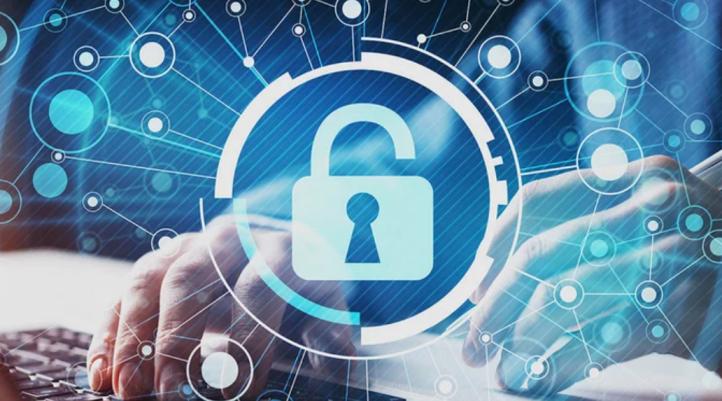When you’re building a business — whether it’s a tech startup, a boutique agency, or even a local coffee shop — cybersecurity probably isn’t the first thing lighting a fire under you. That’s natural. Growth, branding, customer acquisition — they all shout louder. But lurking quietly underneath is the reality that a single cyberattack can bring everything crashing down. If you’re not giving your cybersecurity posture the same energy you give your brand strategy or product development, you’re gambling with everything you’re building. Here’s what you need to know if you want to stay in the game for the long haul.
Cybersecurity Isn’t Just for Tech Companies
A lot of business owners fall into the trap of thinking cybersecurity is only necessary if you’re handling millions of users or running a software company. The truth is, hackers don’t discriminate based on the size of your operation. In fact, small to mid-sized businesses are prime targets because they tend to have weaker defenses.
Whether you’re a solopreneur with a Squarespace site or a growing team managing e-commerce transactions, you have something valuable: customer data, payment information, intellectual property, and a reputation that’s worth its weight in gold.
Your Team Is Your Weakest (and Strongest) Link
Most data breaches don’t start with some mysterious elite hacker in a dark basement. They usually begin with a simple mistake — a bad password, a click on a phishing email, or uploading sensitive documents to a public folder.
You can invest thousands into the latest firewalls and encryption, but if your people aren’t trained to spot basic scams, you’re still exposed. Building a culture where cybersecurity is everyone’s job — from the receptionist to the CFO — is non-negotiable.
Compliance Isn’t Optional, Even if No One’s Watching
Regulations like GDPR, HIPAA, and PCI DSS aren’t just scary acronyms; they’re legally binding rules that could cost you dearly if ignored. You might think, “Well, no one’s auditing my little operation yet,” but it only takes one breach for regulators — and lawyers — to come knocking.
Plus, when you build compliance into your operations from day one, you actually strengthen your business for the long term. It becomes easier to scale, partner with bigger players, and win customer trust because you’re operating responsibly behind the scenes.
Your Insurance Policy Won’t Save You From Embarrassment
Cyber insurance from companies like Travelers and Nationwide is smart — you absolutely should have it — but it’s not a magic get-out-of-jail-free card. Insurance can help cover some of the financial fallout, but it won’t erase the damage to your brand or rebuild the customer trust you might lose after a breach.
Worse, if you’re found negligent — like not keeping systems updated or ignoring basic security protocols — insurers might deny your claim altogether. Think of insurance as a safety net, not a substitute for a real security strategy.
Safeguarding Sensitive Documents with Password-Protected PDFs
When you’re handling sensitive files, tossing them around in unsecured formats is an open invitation for trouble. Locking PDFs with a password is a smart, straightforward way to add an essential layer of protection, making sure that only the right eyes ever see the contents. Beyond that, enabling e-signing capabilities with tools like Adobe digital signature lets you sign contracts, agreements, and critical paperwork without risking the integrity of the document.
Digital signing adds another dimension of security because it requires your unique digital certificate and PIN to validate your identity.
Outdated Software is a Front Door for Attackers
It’s easy to click “remind me later” when a software update pops up in the middle of your workday. But every day you delay patching your systems is another day an attacker could stroll right into your network. Updates often fix known security holes that hackers are actively searching for. Make it part of your company rhythm — the same way you lock the doors at night or back up your files — to apply updates religiously.
Cybersecurity Should Be a Line Item, Not an Afterthought
When you’re budgeting for your business, it’s tempting to put all your dollars toward visible, sexy things like marketing campaigns or new product features. Cybersecurity rarely shows immediate returns, so it often gets shoved to the back burner. But treating security as a sunk cost instead of a strategic investment is like saving money by not buying smoke detectors. Budgeting for cybersecurity — training, tools, audits, incident response plans — is a direct investment in your company’s survival and resilience.
You Can’t Defend What You Don’t Understand
A lot of entrepreneurs make the mistake of blindly outsourcing cybersecurity and thinking the problem is solved. Hiring an IT firm or using cloud services is great, but if you have no idea where your critical data lives, who has access to it, or how it’s protected, you’re still vulnerable. You don’t need to become a cybersecurity expert, but you should have a working knowledge of your own systems. Ask questions. Demand clear answers. Ownership of your risk starts with understanding it.
Bottom Line
Cybersecurity isn’t a checklist you knock out once a year and forget about. It’s a living, breathing part of running a responsible, forward-thinking business. Entrepreneurs who treat it as foundational — not optional — are the ones who stay standing when the unexpected hits. Every password you strengthen, every employee you train, every piece of software you patch builds a stronger shield around your vision. Don’t let all your hard work be one click away from disaster. Take cybersecurity seriously, because your future absolutely depends on it.


2 thoughts on “Shielding Your Future: What Entrepreneurs and Business Owners Must Understand About Cybersecurity”